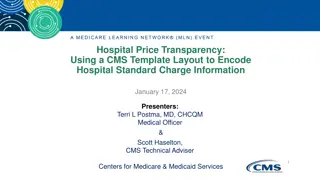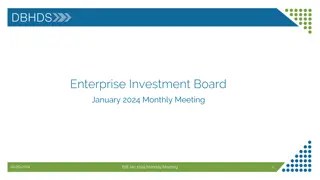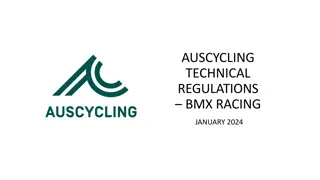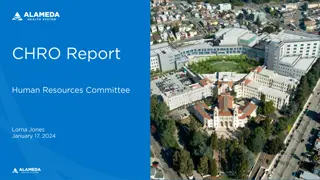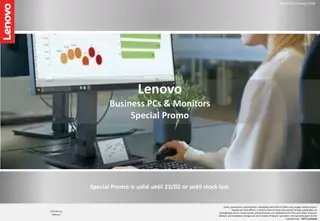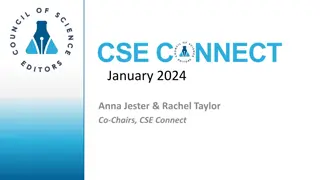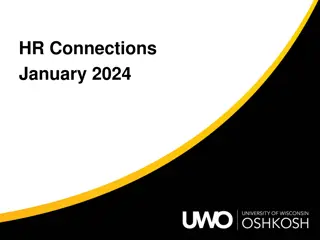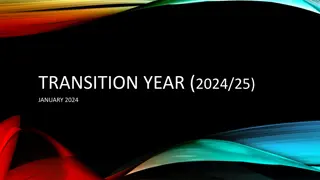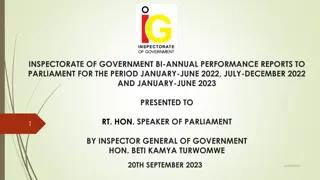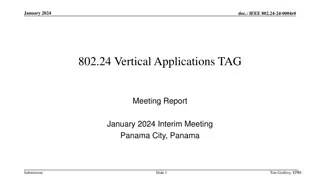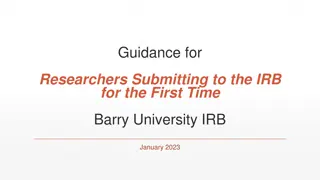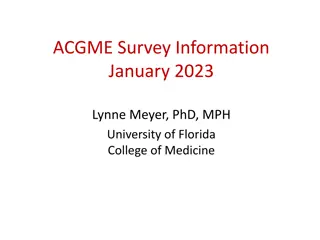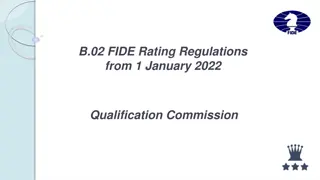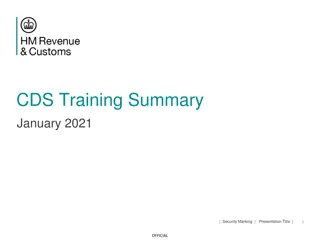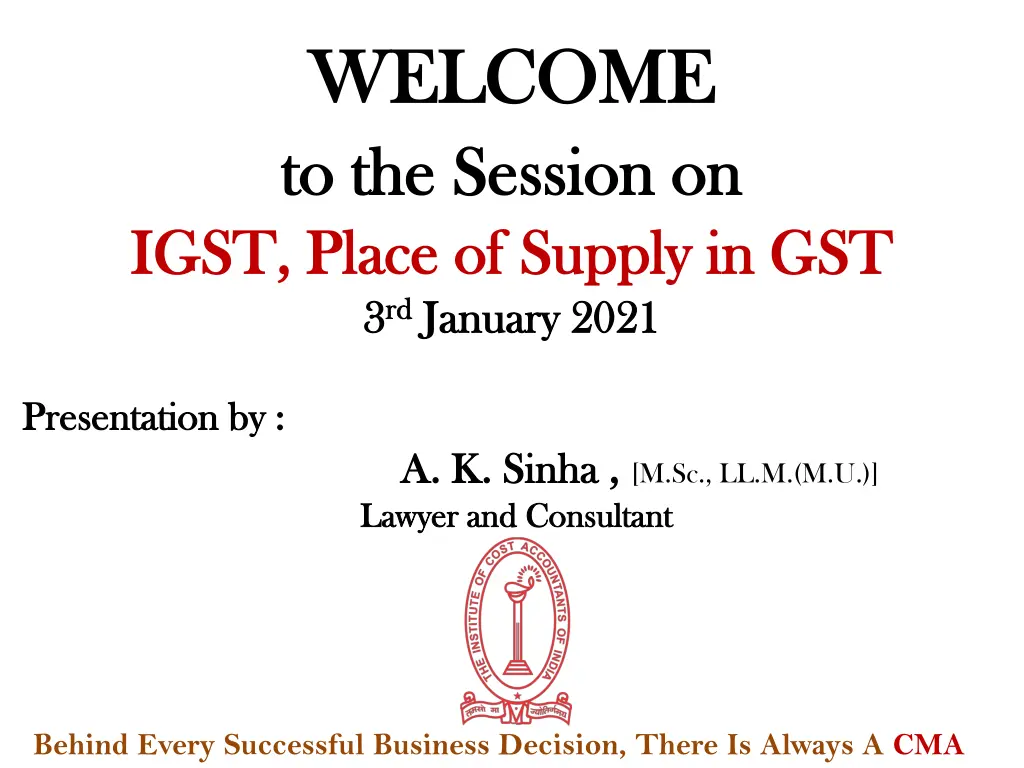
Understanding IGST Place of Supply in GST Act
Explore the key concepts of IGST and Place of Supply in the GST Act, including definitions, levies, exemptions, and rules for inter-state and intra-state supplies. Gain insights into the location of supplier and recipient, import/export regulations, and more.
Uploaded on | 0 Views
Download Presentation

Please find below an Image/Link to download the presentation.
The content on the website is provided AS IS for your information and personal use only. It may not be sold, licensed, or shared on other websites without obtaining consent from the author. If you encounter any issues during the download, it is possible that the publisher has removed the file from their server.
You are allowed to download the files provided on this website for personal or commercial use, subject to the condition that they are used lawfully. All files are the property of their respective owners.
The content on the website is provided AS IS for your information and personal use only. It may not be sold, licensed, or shared on other websites without obtaining consent from the author.
E N D
Presentation Transcript
WELCOME WELCOME to the Session on to the Session on IGST, Place of Supply in GST IGST, Place of Supply in GST 3 3rd rd January 2021 January 2021 Presentation by : Presentation by : A. K. Sinha , , [M.Sc., LL.M.(M.U.)] Consultant A. K. Sinha Lawyer and Lawyer and Consultant Behind Every Successful Business Decision, There Is Always A CMA
Ss. 1 Title, Scope, Commencement Definitions: Export of goods taking goods out of india to a place outside India. Expor of services Supplier in India, POS+Recipient outside India, Foreign currency, not just his branch abroad. Import of goods Bringing goods into India from a place outside India. Import of services- Supplier outside India, POS+Recipient in India. India Territorial waters, continental shelf, EEZ + Seabed, subsoil, air space over Territorial waters + installation/structure/vessel in Continental shelf & EEZ. Location of Recipient Regd POB, a fixed establishment elsewhere, In case of multiple Fixed establishments the most directly concerned, In absence of all these- rerecipient s usual place of residence. Location of supplier - similar Board may appoint officers for IGST. 2 3 Central Govt can authorise (on conditions) state officers to be proper officer under IGST Act. 4
Ss . Levy/collection- IGST, Rate cap 40%, Transaction value u/S15 of CGST Act, shall be paid by the taxable person. IGST on import- levied / collected u/S.3 of CTA, 1975, on value u/S.12 of Customs Act, 1962. RCM B2B- govt can specify categories where recipient will pay GST. RCM C2B- Registered recipient will pay IGST on supply received from non-registered supplier. ECO- Govt notified ECOs will pay IGST on supplies made through it. If not physically presnet in India, its representative will pay. If not there any, ECO will appoint one. 5 Exemption- General by notification, Ad-hoc by special order; Retro- explanation within one year. Supplier will not collect tax if supply exempted absolutely. 6
Ss. Inter-State Supply of Goods- (subject to POS rules u/S.10) -Location of the supplier and the POS are in different States/UTs. -supply of goods imported into Indian territory till they cross Customs Frontier. Inter-State Supply of Services- (subject to POS rules u/s.12) -where LOS & POS in different States / UTs. -Import of service Inter-State Supply of Goods and/or Services- -when supplier in India and place of supply abroad (ie physical export) -supply to or by SEZ unit/developer -supply in other non-intra territory. 7 Intra-State Supply of Goods- (subject to POS rules u/S.10) -Location of the supplier and the POS are in the same States/UTs. - 3 exceptions :- SEZ, High sea (ie supply of imported goods till dock point) & out-bound tourist. Intra-State Supply of Services- (subject to POS rules u/s.12) -Location of the supplier and the POS are in the same States/UTs. -Exception: To or by SEZ -Treated as distinct persons :- out-India or out-State own establishment (ie branch / Agency/representational office) & Within State separately registered same PAN POBs 8 Supplies originating or terminating in territorial waters If supplier s location or place of supply is in territorial waters, then supply will be deemed to have taken place in the nearest coastal State. 9
Ss. POS for Domestic supply of Goods 10 11 POS for International Supply of Goods 12 POS for Domestic Supply of Services 13 POS for International Supply of Services Special provision for payment by out india OIDAR supplier to non-registered online recipient in India 14 Refund of IGST to Out-bound tourists (subject to conditions and safeguards) -Tourist who is not residing in India. Does not stay above 6 moths. 15 Zero rated Supplies :- Export and to SEZ -Subject to negative list u/s17(5) CGST Act, ITC may be availed for making zero rated supply. (even though it is an exempt supply other than non-taxable supply) -RP exporting G/S will have two routes for claiming refund : (a) Export under bond/UT without paying IGST; and claim refund of unutilised ITC. (b) Export on payment of IGST (by utilizing ITC) and claim refund of this IGST paid. -If DTA unit supplies to SEZ on payment of IGST, then SEZ unit can avail credit of this IGST. 16
Ss. Tax apportionment & Fund Settlement- When IGST credit chain breaks (in case of last consumer, composition dealer, not eligible, lapse due to delay, import by composition dealer) When separate POS not determinable then to each state to whom the TP has made supplies during the year ( in value proportion) When TP who made supply is not determinable then to all states. Similar treatment to Interest and penalty. In case of subsequent refund apportioned amount shall be reduced. 17 Amt transfer for IGST Credit used IGST credit used to pay CGST transfer from IGST fund to CGST fund. IGST credit used to pay SGST transfer from IGST fund to destination state. 18 No interest on incorrect tax paid corrected later Separate refund procedure i/r/o incorrectly paid tax 19 -Enlisted twenty four provisions of CGST Act will also apply on IGST Act. -TDS rate will be 2% for IGST -TCS rate will be up to 2% -Value of supply will include other taxes if separately charged. -Penalty under IGST will be sum total of penalty under GST & SGST/UTGST Act. 20
Transitional Provisions Import initiated before AD, but completed on / after AD- - IGST payable - But not when full liability discharged before AD -If part duty is paid under existing law, then remaining duty will be paid under IGST law. -Transaction will be taken to have initiated pre-AD if either invoice or payment is before AD. 21 -Govt can make rules; -rule making power includes power to give retrospective effect. Rules may also provide for penalty for contravention. 22 23 Power to make regulations consistent with the Act. Every rule, regulation, notification shall be laid before each house of Parliament for 30 days. -whatever already done will be saved. 24 Govt may issue general / special order to remove difficulty arising in giving effect to the Act. -Every such order shall be laid before each house of Parliament. 25
Place Of Supply Goods Services Domestic International Domestic International S.10 S.11 S.12 S.13 Rest All Rest All MBAB Import Export IPTA-ETBT-BIA IPA-BT-BD 12(2) 13(2) Importer s Location RD Recipient s TIN Recipient s location Movement Outside India URD Recipient s location., Then If not available, then supplier loc No Movement Supplier s location Admission to Event Immovable Linked Performance Based Event Transport (Goods) Training & P.A. Bill 2 Ship 2 Management Transport (Passenger) Advertisemen t to Govt. On Board Tel Com Banking Insurance Assembly Immovable Linked Performance Based Transport (Goods) Transport (Passenger) Admission to Event + Event Banking . Board On Board Data (OIDAR)
PLACE OF SUPPLY S.10 Goods Domestic S.11- Goods - International S.12- Services - Domestic S.13- Services International S.14- OIDAR services Special Provision
Sr. Goods (domestic) (MBAB) Place of Supply (Section 10 ) Where supply involves movement of goods [s.10(1)(a)] (by supplier, recipient or third person) What is involves . In VAT, it was occasions . Should movement be within supply contract? Onus to prove movement ? Whether condition of continued movement or just knowledge is sufficient? Whether that condition should be express or implied or incidental? Location at which movement of goods terminates for delivery to the recipient. Case law 1. AAR kar in DEPUTY CONSERVATOR OF FORESTS, BANGALORE 2. Kerala HC in LALITHA MURALEEDHARAN Versus RANGE FOREST OFFICER, IDUKKI (3.9.19) 1 Where supply does not involve movement of goods [s.10(1)(c)] (e.g. OTC sale, As is where is sale, Financial leasing.) 2 Location of the goods at the time of delivery to the recipient. Where goods are delivered to the recipient on direction of a third person (Bill to Ship to, Transit sale) [s.10(1)(b)] Principal place of business of third person (ie Bill to destination) 3 Where the goods are assembled or installed at site [s.10(1)(d)] Place of such installation or assembly 4 Where the goods are supplied on board a conveyance, including a vessel, an aircraft, a train, or a motor vehicle [s.10(1)(e)] Location at which such goods are taken on board. 5 If not determinable by S.10(1)(a to e) in the manner as may be prescribed. 6
Sold at depot in State-1, taken to State-2: Intra-state as per AAR Karnataka [s.10(1)(a) Vs.10(1)(c)] Case Law:- IN RE : DEPUTY CONSERVATOR OF FORESTS, BANGALORE Advance Ruling No. KAR ADRG 20/2019, dated 26-8-2019. 2019 (29) G.S.T.L. 252 (A.A.R. - GST) Intra-State supply - Depot being point of sale and destination of sale - After purchase and payment transfer of property takes place and after completion of such transfer, buyer free to transport it to any place within or outside Karnataka - Transaction, an intra-State supply independent of where goods are taken by recipient after supply is completed - Section 8(1) of Integrated Goods and Services Tax Act,
Fact:- Karnataka Forest Department disposes by e-auction and e-tender cum auction methods, timbers of various species both, harvested from forests/ plantations as well as confiscated being involved in forest offences. These are disposed through various depots in the State, including Jarakbande Sandal Godown, Bengaluru. The purchaser from Kerala represented that the insistence of the forest department on payment of SGST and CGST is wrong. Their contention is that since the material sold/ purchased is being taken to and consumed outside the State of Karnataka, they should be paying 18% IGST under the IGST Act, 2017. Ruling: CGST + SGST payable. S.10(1)(a) is attracted when the movement is within the supply contract. Main points of Findings for the Ruling:- If the movement of goods is involved within the supply contract then it, then clause (a) is attracted in this case, irrespective of recipient being registered outside State of Karnataka, the learned AAR has held that the depot delivery transaction is intra-state transaction. In the pertinent case, it is seen that the goods are delivered to the buyer and the supply transaction is completed. The contract is over the moment the invoice is raised and the payment is made The supply gets completed the moment the goods are delivered to the purchaser and the purchaser applies and obtains permit from the Forest department later to transport the goods to his place or any place, on which the Forest department has no control or conditions There can be situation that inspite of delivery to buyer at depot, the buyer undertakes inter state movement to his place in other state in the continuation of the said purchase. In such circumstances the movement will continue and it will terminate in other state, making the supply an inter state supply. But if no such express or implied condition of inter state movement is available in contract it will be intra state supply. if the disclosure of destination is part of the supply contract and the contract makes it mandatory to issue transport permit to the place of such destination, then the place of supply would be the place of termination of movement of such goods The delivery of the goods happens when the possession of goods is handed over to the supplier and the movement of goods is not a precondition for supply, they both being independent events. There is no breach of contract of supply, if the purchaser, being from outside the state does not actually take the goods to his place outside the state.
Sale in one state for movement to other state: Inter-state as per Kerala HC [s.10(1)(a) Vs.10(1)(c)] Case Law:- Kerala HC on 3.9.2019 in Lalitha Muraleedharan vs. Range Forest Officer, Marayoor Range, Marayoor, Idukki District and others (71 GSTR 236)(Ker). In the aforesaid case, the issue was about the nature of supply of forest products when the delivery to recipient is at depot. The Petitioner was recipient and SEZ unit. It was insisting for exempted sales being sales to SEZ is a zero rated sales. The Forest Department which is the supplier in that case was objecting that since the goods are delivered at depot itself, it is intra-state sale and hence cannot be covered under Zero Rated supply. The Hon ble Kerala High Court after examining the facts held in favour of Petitioner. The basic principle behind provisions relating to place of supply is that GST is destination based tax. Therefore, tax is finally payable where goods and services are consumed. It is admitted that the supply of goods is to an SEZ Unit.
SEZ - Supply to SEZ - Deemed export - Zero-rated supply - Exporter of sandalwood products in Tamil Nadu purchasing sandalwood in e-auction from Forest Department in Kerala - GST being destination based tax, therefore, tax finally payable where goods and services are consumed Petitioner upon completion of other sale conditions although receives the sandalwood logs at Marayoor Forest Department depot, Kerala, acknowledgment of goods there not results in termination of movement of goods but results in further movement of goods at the hands of recipient to SEZ - Accordingly, actual place of supply by plain interpretation of Section 10(1) of Integrated Goods and Services Tax Act, 2017 within SEZ in Madras, State of Tamil Nadu, but not in State of Kerala - Subject supply comes as inter-State movement of goods to SEZ outside the State of Kerala and subject transaction to be treated as a Zero-rated supply in terms of Section 16(1)(b) ibid and at par with physical export - IGST not payable.
Delivery of vehicle in State A to the customer resident in State B Case Law: Kerala HC in Kun Motor Co. Private Limited v. The Assistant State Tax Officer The Kerala High Court in the case of Kun Motor Co. Private Limited v. The Assistant State Tax Officer on 6th December, 2018 dealt with the question of requirement to upload E-way Bill with respect to the transport of a car purchased in Puthuchery, by a person normally residing in Thiruvananthapuram. In this case, the person resident of Thiruvananthapuram bought his car from Puthuchery and requested the car dealer to transport his car to Thiruvananthapuram, the question before the Court was whether there was a need to upload E-way Bill by the car dealer or should this be considered as a movement by customer himself. It was held by the Court that it cannot be considered as movement of car by dealer as Court observed as follows :- Though a temporary registration it has to be noticed that there is absolutely no enabling provision, though also no prohibition, in getting a permanent registration of the vehicle by yet another person. We also have to notice that even if such a provision existed, a second sale of the W.A. No. 1803/2018 motor vehicle is not taxable within the State, unless there is a premium on the original sale price as seen from Notification No. 8/2018-C.T. (Rate). Hence on these two grounds, of an intra-State sale having occasioned and the transport being of used personal effects, we find that the detention was illegal. The Court observed this to be a case of intra-State sale of car.
Delivery of vehicle in State A to the customer resident in State B [The same issue was relevant even under Central Sales Tax Act, 1956. eg SC in TELCO] Case Law: State of Bihar v. Tata Engineering & Locomotive Co. Ltd. - (1971) 27 STC 127 (SC) The assessee, having its registered office in Bombay and its factory in Bihar, was carrying on the business of manufacturing and selling trucks, bus chassis and spare parts to their appointed dealers and others. Agreements were entered into between the assessee and the appointed dealers, under which, each dealer was assigned a territory in which alone the dealer could sell. The dealers had to place the indents, pay the price of goods to be purchased and obtain delivery orders from the Bombay office. In pursuance of the delivery orders the trucks etc. were delivered in Bihar to be taken to the territories assigned to them for sale there. If the dealers failed to abide by the term requiring them to move the goods outside the State of Bihar they would have committed breach of their contracts. The Supreme Court decided that where under the contract of sale, the buyer is required to remove the goods from the State in which he purchased those goods to another State and when the goods are so moved, the sale in question must be considered as a sale in the course of inter-State trade and commerce. [Thus, the criterion should be Whether there is a compulsion for customer to take the car so purchased to another State or not? ]
Supply involves movement in GST Vs Sale occasions movement in CST Case Law:- Kerala State Small Industries Development and Employment Corporation Ltd Vs State of T.N. [(1999) 113 STC 169, 176-77 (Mad)] Only a transaction of sale connected with the movement of goods can be regarded as an inter-state sale. The movement and the same must have a reasonable direct link. Such movement can be stipulated in the contracts of sale specifically or it may be contemplated by the parties as an implied term of the contract. Even if the movement of the goods is not specified in the contract, and even if it cannot be regarded as an implied term, if such movement is incidental to the contract, then in such case also such transaction would be an inter-state sale. The relationship between the movement and the sale should be that of effect and cause. The sale should have occasioned the movement, or the movement should have been incidental to sale. [Thus, movement and the sale should be connected but it need not essentially be part of the contract of sale. Movement may be implied or incidental to the contract of sale which is dependent on the facts of a particular case and also the intention of the parties.]
Bill to Ship to [s.10(1)(b)] Case Law:-In re Sanjog Steels Private Limited - 2019 (21) G.S.T.L. 258 (A.A.R. - GST), the Authority held that Section 10(1)(b) of the Act nowhere limits the transaction to only three parties/persons. The said section only contemplates about role of thirdparty and declaration of principal place of business . In the instant case there are four parties, viz., brand manufacturer using brand name, first buyer of principal and ultimate customer. In view of the aforesaid legal position, the AAR held that manufacturer is eligible to dispatch goods to ultimate customer or buyer or principal. name owner (principal),
The Applicant Sanjog Steel purchages trademark of Rathi Steel (on royalty on which GST is paid), manufactures steel bars with the brand name and sales to Rathi itself. Rathi after adding his margin sales to Goyal Enterprises. Goyal sells to independent customers. The goods i.e. steel bars are directly dispatched from Sujog Steel to ultimate customer and E-Way Bill is prepared on a Bill to Ship to model as per the provisions of Section 10(1)(b) of the IGST Act, 2017. Sujog Steel is an associate company of Goyal Enterprises. Questions 1:-Whether Sujog Steel can dispatch to end customer by invoicing as bill to Rathi, and ship to end customer as per S.10(1)(b) IGST? Answer:- Yes. AAR observed that the cycle of supply of goods from the applicant to the final customer, involves four persons, i.e. Sujog, Rathi, Goyal and end Customer. AAR opined that Section 10(1)(b) of IGST Act, 2017 does nowhere limit the transaction to only three parties/persons. The said section only contemplates about role of thirdparty and declaration of principal place of business . Therefore, the supply from M/s. SSPL to M/s. X on a Bill to Ship to mode as per provisions of Section 10(1)(b) of IGST Act, 2017 is permissible. Press Note of Ministry of Finance on Issues regarding Bill to Ship to for e-way bill under CGST Rules, 2017 dated 23-4-2018 clearly emphasizes that only a single e-way bill is to be issued either from the supplier of goods or by third party.
Questions 2:- Whether S.15 CGST r/w Rule 28 (particularly the 2nd proviso) will apply for transaction between Sujog and Rathi, and thereafter between Rathi and Goyal, as all are B2B and credit is available all across? Answer:- Yes. Questions 2:- Whether value between Goyal and end customer will be as per Section 15? Answer:- Yes
COMMERCIAL TAXES OFFICER vs. BOMBAY MACHINERY STORE, SC on 27 April 2020 Delivery of goods Interstate sale Goods bought from outside the state Goods remained with transport company for over a month Constructivedelivery assumed to have taken place after the time period as fixed by Tax Administration-exemption claimed u/s 6(2) of Rajasthan Sales Tax Act, 1964 rejected -Sale of such goods beyond the fixed time frame considered sale within the state Held by Supreme court that S. 3 of 1956 Act is silent on time frame within which delivery ought to take place States expressly that movement of goods would terminate only on delivery No concept of constructively delivery Fixing of time frame by tax administration not permissible Interpretation of the provisions by tax administration based on trade practices not allowed Appeal by revenue dismissed. Defining the scope of delivery as per S.3 of the Central Sales Tax Act, the Hon ble High Court has passed an order where initially the assessee had purchased electricity motors and its parts from outside the state and sold it to the dealer within the state of Rajasthan. Documents of title were transferred during the movement of goods from one state to another and exemption u/s 6(2) of Rajasthan Sales tax Act 1964 was obtained. After the goods remained with the transport company upon their arrival at the Kota region for more than a month, the Revenue deemed the assessee to have taken constructive delivery of goods and sale of such goods after that period was deemed to be sale within the state. As per the revenue, such a sale attracted 12% tax on sale of goods within the State. Penalty and interest were imposed alongwith it by the tax officer.
Mumbai Purchaser ordered Mumbai supplier to deliver machine at Delhi [s.10(1)(a) Vs 10(1)(b) i.e involving movement Vs Bill2Ship2] If we go by rule of where supply involves movement u/s. 10(1)(a), POS will be Delhi, where movement for terminates for delivery; and accordingly, it will be IGST billing. However, if we go by Bill2Ship2 principle u/s 10(1)(b), POS will be Mumbai; and it will be C+S billing.
Delhi HO orders Mumbai supplier to install machinery at its distinct person in Mumbai [s.10(1)(b) Vs 10(1)(d) i.e Bill2Ship2 Vs Installation] ORDER OF APPLYING THE DIFFERENT RULES ?- not given 10(1) of the IGST Act, 2017 provides for five different rules for the determination of the place of supply. The issue may arise in situations wherein the transaction in question fall into two or more rules. E.g. Delhi GSTIN places order with Mumbai supplier to install machinery at its company at same PAN entity at Mumbai (distinct person). If we go by bill2ship2 principle u/s. 10(1)(b), POS will be bill to location i.e. Delhi; and it will be an IGST billing. However, if we go by assembly/installation principle u/s 10(1)(d), POS will be installation point i.e. Mumbai; and it will be C+S billing; leading to loss of credit to Delhi purchaser. To ensure that the ITC is not lost, the Delhi HO may opt to get the invoicing at Mumbai itself.
Sr.No. Goods (International) Place of Supply (Section 11 ) 1 Import of Goods Recipient Location 2 Export of Goods Out side India [zero rated]
[S.12 & 13] POS i/r/o services (within country & cross country) Default Rule - (for all services other than specified services):- For within Country service supply [S.12(2)] Recipient s TIN location (if registered) His address on supplier s record (if not registered) Supplier s location (if address not available) For Cross Country service supply [S.13(2)] Recipient s location Supplier s location (if not available) Special Rules-(for selected specified services):- Within Country 12 services [S.12(3 to 14)] IPTA-ETBT-BIA Cross country 8 services [S.13 (3 to 13)] IPA-BT-BO See Comparative Tables on the next slides
SEC. POS S.12(DOMESTIC) S.13 (Cross Border) Property location (If IP in India) Recipient location (If IP abroad) [proviso] Each State in value proportion (if IP in multiple States) [Expl]. [Eg Designing Ambani s villa in Delhi/Singapore. YOYO rooms to Airlines for its crew] DESCRIPTION Property location 12(3)/ 13(4) I.P. related(also boat, vessel) a) Directly in relation to (expert services) b) Lodging, accommodation by .. c) Accommodation in the IP for functions d) Ancillary to above [expert, agent, renter, hotelier] [Circular 103/19 dt 28.6.19:- cargo handling and related services will not be IP related, and so, default rule will apply] [Cir 48/18 dt . accommodation, banqueting to SEZ is inter-state] Short conferencing, term Where services actually performed [Note- Repair not covered. ] X Ltd, Bangalore repairs Air India s plane at Kathmandu. POS ?] 12(4)/- - Performance based 1) restaurant, catering 2) Grooming, beauty, fitness 3) Health services (+ plastic surgery) --------------------------------------------- - i/r/o goods physically made available (eg repair) - To an individual where physical presence of recipient or person acting on his behalf is required .. Where actually performed If remotely done: goods location. [Software Ltd, Bangalore takes online AMC from USA for its Mumbai server. POS is mumbai] But default rule i.e. recipient location for-- imported for repair/any process, treatment. Cargo handling at port Pharma R&D for foreign client Wef 1.10.19 -- /13(3) B2B Recipient s location B2C where actually performed Training and Performance Appraisal 12(5) Default rule i.e. Recipient s location
12(6)/13(5) Admissionto event/ park and ancillary [Book my ticket Ltd, Bangalore books IPL Matches tickets] Event organization service & ancillary or assigning sponsorship to such event [eg Cars Ltd, Bangalore engages Event Ltd, Mumbai for car launch event at all metro cities. POS is Bangalore if Car ltd is regd, otherwise POS is at each metro] Event/Park location B2B Recipient s location B2C where event held (If held abroad, then recipient s location. if held in multi- States on lump sum charge, then Each State. Event location [1.USA college does seminar at Delhi for students. POS is Delhi. 2.If Company X in India pays for conference to be attended by its CEO held in London, the place of supply of service will London.] 12(7)/13(5) prospective B2B- location B2C- Where goods handed over for transportation if transported out of India, then Destination of goods Destination of goods [If sent by mail/courier- then residual 13(2)] [Japan Ltd engages Indian liner ships to carry exporter s goods to Japan. POS is Japan] 12(8)/13(9) + 13(2) Transport of goodsincluding mail/courier (for cross-country excluding mail/courier) [eg Cars Ltd, Bangalore engages Express Transport, Chennai to transport cars from Silvasa warehouse to Delhi. If Cars Ltd is RD, POS is Bangalore. If it is URD, POS is silvasa] Recipient s indian B2B- Recipient s TIN B2C- where continuous journey If passes are given for future use then default rule of 12(2). [Thus, first find regn, then embarkation, and then customer s address] Where passenger embarks for continuous journey (i.e. whether single or multiple ticket issued at same time & no stop over is there) 12(9) 12(2)/13(1 0) Transport of Passenger [eg Mumbai Ltd purchases air ticket from Chennai Airlines for journey from Delhi to New York. If Mumbai Ltd is RD, then POS is Mumbai; and if URD, then Delhi] embarks for
12(10)/ 13(11) First scheduled point of departure Same [Air India departing from Mumbai to Paris providing food to its passengers, the place of supply will be Mumbai (first scheduled point of departure). For return journey, the place of supply shall be Paris.] On board conveyance [eg Palace on wheel running from Jaipur to Kaynakumari provides on board entertainment service. POS is Jaipur for onward journey, and Kanyakumari for return journey] 12(11)/-- Telecom services - Fixed line - Leased circuit - Dish antenna [Bangalore resident purchases Dish antenna from Tata Sky, Mumbai. Bangalore is POS] - Post paid Residual 13(2) -Where installed for receiving the service -Each State (if taken on multi-States on lump sum charges) -Billing address 1) Selling agent s location 2) Where voucher sold -Recipient s location (on record of provider) -supplier s location (if address not available) - Pre paid by voucher - Other cases [eg online recharge]
12(12,13)/ Banking, financial services, stock broking to any person -Recipient address on supplier s record (if not there- then supplier s location) - - Insurance . - Banking/Financial/NBFC to account holders - Intermediary (broker, commission agent ) - Hiring transport (upto 1 month) - TIN of RD & PIN of URD . . . - Supplier s Location [If XY Bank in USA charges loan processing charges to located in India, the place of supply of service will be USA] [Note- strictly saying, it applies only to Indian banks, as foreign banks are not banking company as per definition. [Cir107/19 Dt 18.7.19 gives test of intermediary] /13(8) AB Co.
Advertisement to Govt- 12(14) Each state Residual 13(2) OIDAR 13(12) Recipient s location [deemed to be located in India if 2 out of 7 specified conditions satisfied] Residual Residual services not covered above - Residual 12(2)(a), 12(2)(b) - 13(2)
POS S.12 (DOMESTIC) Property location (If IP in India) Recipient location (If IP abroad) [proviso] Each State in value proportion (if IP in multiple States) [Expl]. [Eg Designing Ambani s villa in Delhi/Singapore. YOYO rooms to Airlines for its crew] SEC. S.13 (Cross Border) Property location DESCRIPTION I.P. related(also boat, vessel) a) Directly in relation to (expert services) b) Lodging, accommodation by .. c) Accommodation in the IP for functions d) Ancillary to above [expert, agent, renter, hotelier] 12(3)/ 13(4) [Circular 28.6.19:- handling and related services will not be IP related, and so, default rule will apply] [Cir 48/18 dt . Short term accommodation, conferencing, banqueting to SEZ is inter-state] 103/19 dt cargo
S.12(3) Vs 13(4): Scope of Immovable Property related services: 12(3)- POS for domestic supply= (i) Property s location (if it is located in India) & (ii) Recipient s location(if the IP/boat-vessel is located or intended to be located outside India) 13(4)- POS for international supply= Property s location [even if IP located abroad, as unlike 12(3), s.13(4) does not contain proviso & explanation] (a)Directly related to Immovable Property: 1. Surveyor 2. Architect 3. Engineer 4. Construction co-ordinator 5. Interior decorator 6. Other related experts 7. Estate agent 8. Granting right to use 36
(b) Lodging Accommodation by: 1. Hotel 2. Inn 3. Guest house 4. Home stay 5. Campsite 6. House boat 7. Other vessel 8. Any other name
(c) Accommodation in Immov. Prop. For organizing: 1. Matrimonial- marriage, reception, related event. 2. Functions as: i. Official ii. Social iii. Cultural iv. Religious v. Business 3. Services related to such functions at such property (d) Any ancillary service to a, b, c above. Example:- Mr. Ambani from Mumbai is constructing a villa at Delhi. He engages an Architect of Bangalore. POS for architect s services will be Delhi. However, if that villa is being constructed at Switzerland, then Mr Ambani s location i.e. Mumbai will be the POS. Accommodation service to SEZ:- Services of Short term accommodation, conferencing, banqueting etc given to SEZ is inter-state supply, as the specific provision of S.7(5)(b) will prevail over the general POS provision of S.12(3)(c). [Cir 48/22/2018- GST dt 14.6.18] 38
Company registered in State-1 hosts conference in State-2 The company may either procure the services such as lodging, catering, photography, etc. directly from the concerned vendors such as hotel or photographers or it may engage an event manager and procure the services from the said event manager. The choice of the mode of procuring the supplies will have an impact on the determination of the place of supply and consequent claim of ITC. Sec. 12(3) of the IGST Act, 2017 deals with supply directly in relation to immovable property, lodging accommodation in hotel & any ancillary service. Sec. 12(4) deals with the supply of restaurant & catering service. Sec. 12(7) deals with the supply of service by way of organising an event in relation to a conference. Sec. 12(2) which is a default rule deals with all supplies not specifically covered from Sec. 12(3) to Sec. 12(14). Individual procurement of services by the business entity in question may therefore entail the application of Sec. 12(3) and 12(4) leading to C+S billing and resultantly a credit loss to the company in some other state. Whereas, the procurement from the event organizer may entail the application of Sec. 12(7), as per which, the POS will be the location of the registered recipient. Hence ITC of IGST paid will be available to the company in other state.
Circular no. 103/22/2019-GST GST dated 28th June, 2019 Clarification regarding determination of place of supply in certain cases 1. Various services being provided by the port authorities to its clients in relation to cargo handling. Some of such services are in respect of arrival of wagons at port, haulage of wagons inside port area up-to place of unloading, siding of wagons inside the port, unloading of wagons etc. Such services are ancillary to or related to cargo handling services and are not related to immovable property. Accordingly, the place of supply of such services will be determined as per the provisions contained in sub- section (2) of Section 12 or sub-section (2) of Section 13 of the IGST Act, as the case may be, depending upon the terms of the contract between the supplier and recipient of such services. 2. Services on unpolished diamonds such as cutting and polishing activity which have been temporarily imported into India and are not put to any use in India In case of cutting and polishing activity on unpolished diamonds which are temporarily imported into India are not put to any use in India, the place of supply would be determined as per the provisions contained in sub-section (2) of Section 13 of the IGST Act.
2. Performance Based services 3. Training and performance appraisal Services
12(4)/ -- .. Where actually performed If remotely done: goods location. [Software Ltd, Bangalore takes online AMC from USA for its Mumbai server. POS is mumbai] But default rule i.e. recipient location for-- imported for repair/any process, treatment. Cargo handling at port Pharma R&D for foreign client Wef 1.10.19 Where services actually performed [Note- Repair not covered. ] X Ltd, Bangalore repairs Air India s plane at Kathmandu. POS ?] Performance based 1) restaurant, catering 2) Grooming, beauty, fitness 3) Health services (+ plastic surgery) --------------------------------------- ------ - i/r/o goods physically made available (eg repair) - To an individual where physical presence of recipient or person acting on his behalf is required -- /13(3) B2B Recipient s location B2C where actually performed Training and Performance Appraisal 12(5) Default rule i.e. Recipient s location
Performance based services on person :- 13(3)(b) supplied to an individual, represented either as the recipient of service or a person acting on behalf of the recipient. [note:- S.12 has an exhaustive list, which does not cover few of these services] They require physical presence of individual receiver for their supply They are rendered in person and in the receiver s physical presence Generally rendered at supplier s premises (a,b,d,e,f,g below). But sometimes at customer s place (catering etc) & occasionally while the recipient is on the move (personal security, beauty treatment on board a conveyance) a) Cosmetic or plastic surgery b) Beauty treatment service c) Personal security service d) Health and fitness service e) Photographic service (to individual) f) Internet caf service g) Classroom teaching 43
Performance based services supplied to an individual, represented as a person acting on behalf of the recipient. Example: A modelling agency contracts with a beauty parlour for beauty treatment of say, 20 models. Here modelling agency is the recipient of the service, but the service is rendered to the models, who are receiving the beauty treatment service on behalf of the modelling agency. POS:- regardless of the registered location of the modelling agency, the place of supply will be the location where beauty treatment is performed on the models. 44
All the five conditions of S.2(6) must satisfy simultaneously Facts:- Segoma India was a subsidiary of Segoma Israel which was a subsidiary of R2NET. R2NET lists the diamonds of customers only if the diamonds are 3D-photographed by SEGOMA India.R2Net has appointed Segoma Israel for photography service. In turn, Segoma Israel has made agreement with Segoma India to do photography service. AAR Maharashtra held that the present case satisfies conditions at (i) and (ii) of Section 2(6) but not the conditions (iii) and (v) thereof. The photography is performed on diamonds physically made available by the recipient of services to the provider of services, and this is actually performed in India. So the POS is in India. AAAR on appeal observed: As per S. 13(3) the place of supply of the following services shall be the location where the services are actually performed, namely :- Services supplied in respect of goods which are required to be made physically available by the recipient of services to the supplier of services, or to a person acting on behalf of the supplier of services in order to provide the services;.... Since the goods are physically made available by the Diamond dealers/Traders who are not recipient of service, it does not satisfy condition as mentioned in Sec. 13(3)(a). the recipient as per Sec. 2(93) means - (a) Where a consideration is payable for the supply of goods or services or both, the person who is liable to pay the consideration; (b) (c) From the above it should be contested that Place of Provision is Outside India and would not be taxable under the GST Act and should be considered place of service provided outside India. Also, the Learned AAR has ignored the fact that there is no commission on sales, or pre- or post- sales services are provided by the applicant (Segoma India), to Segoma Israel. Hence provision of Section 13(3)(a) of the IGST Act is not applicable to Segoma India.
Case Law: Repair & Maintenance service provided by Indian branch to Indian client of foreign HO: Whether the Indian branch is FE? [AAR said-Yes. AAAR said-No] Domestic transaction [s.12(2)(a) default rule i.e. recipient location] or cross border [s.13(3)(a) i.e. performance location]? Client to pay u/RCM, or Branch to pay u/FCM? Whether or not the non-resident applicant (Kartex, Rassia), having a branch in India, is liable to pay GST on the MARC rendered to an Indian Company. Conversely, whether or not the recipient (BCCL) is liable to pay GST under RCM in terms of Notification No.10/2017 IT (Rate) dt.28.06.2017. Whether the branch of the foreign company in India, which would execute MARC for 17 years, would constitute fixedestablishment for the purpose of payment of GST? AAAR-West Bengal [Iz Kartex, [2020] 121 taxmann.com 313] held that the MARC provided by a Branch of a foreign Company attracts RCM in the hands of the Indian service recipient and not forward charge in the hands of the foreign branch. Overruling the decision of the AAR (IZKartex named after P.G Korobkov Ltd. [2020] 117 taxmann.com 418 (AAR-WEST BENGAL)), the Appellate authority held that the Indian branch does not constitute fixed establishment as envisaged U/s 2(7) of the IGST Act, as Kartex did not have suitable structure in terms of human and technical resources to supply services .
POS of online training/coaching service: [Default rule to apply, as no actual physical meeting takes place] For B2B: it will be recipient s regd POB location For B2C: ? When the service provider and recipient are located in India (Section 12 of IGST Act) The place of supply of services provided in relation to: training and performance appraisal admission to cultural, educational or entertainment event organisation of cultural, educational or entertainment event 1. to a registered person shall be the location of such registered person; 2. to a person other than registered person shall be the location where the services are actually performed/the event is actually held or such park or such other place is located. When the location of service provider or location of recipient of services are outside India (Section 13 of IGST Act) The place of supply of services supplied by way of admission to or organisation of cultural, educational or entertainment event and services ancillary to such admission or organization shall be the place where the event is actually held.
In the case of online/virtual coaching classes, since actual physical meeting of parties does not take place while performance, the POS cannot actually be determined as per the performance based rule. Therefore, S.12 (5, 6, 7) and S. 13(5) of the IGST Act, 2017 cannot be applied to determine the place of supply as there is no physical location where the event is actually held. Hence, the POS will be determined by the default rule under the general provision of section 12(2) of the IGST Act, 2017 where the location of supplier of services and the location of the recipient of services is in India and by the general provision of section 13(2) of the IGST, 2017 where the location of the supplier of services or the location of the recipient of services is outside India. The Default Rule:- S.12(2): The place of supply of services, except the services specified in sub-sections (3) to (14), (a) made to a registered person shall be the location of such person; (b) made to any person other than a registered person shall be, (i) the location of the recipient where the address on record exists; and (ii) the location of the supplier of services in other cases. S13(2): The place of supply of services except the services specified in sub-sections (3) to (13) shall be the location of the recipient of services: Provided that where the location of the recipient of services is not available in the ordinary course of business, the place of supply shall be the location of the supplier of services.
Therefore, when both provider and recipient (students) are in India the place of supply shall be the location of the recipient (Student) if the address of the student is known to the training/coaching service provider. If the address is not known, the place of supply shall be the location of training/coaching service provider. Similarly, when training/coaching service provider is located in India and such service is provided to an unregistered person (Student) located outside India, as per section 13(2) of the IGST Act 2017, the place of supply of such service shall be the location of the recipient (Student). If the address of the student is known to the training/coaching service provider. If the address is not known, the place of supply shall be the location of training/coaching service provider.
Changes by IGST (Amdt.) Act, 2018 dt 30.8.18 wef 1.2.19 vide Notification 01/19 IT dt 29.1.19 [POS for repair/job work shifted from performance based rule to defaultrule ] In S.13(3)(a)- the Second proviso was substituted with a new one, saying that, Temporary import for repair / job work:- actual performance location rule will not apply. That means POS, as per default rule will be recipientlocation , which will be outside India, and therefore, no GST. [job work included now in addition to repair]




